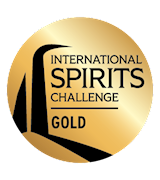TABLE OF CONTENTS
Best Fujian Beverage Types
Black tea is a large and diverse category, and what differentiates it from other tea varieties is heavy oxidation—in the process, the tea leaves of the Camellia sinensis plant attain their distinctive dark color and develop earthy notes.
When brewed, black tea will usually have a typical amber or brownish hue and stronger flavors and aromas, which may range from savory to sweet and include typical earthy, malty, nutty, and fruity nuances. However, since there are numerous variations and blends available, the final taste profile may significantly vary.
VARIATIONS OF Hong cha
THE BEST Hong cha Teas
Oolong is a semi-oxidized tea that can vary depending on the leaf style, level of oxidation, color, and the roasting degree. Falling somewhere between green and black teas, it is one of the most complex varieties regarding production, and it can take on a wide variety of flavors and aromas.
Their color can vary from pale green or yellow to dark orange, while the aromas often include notes of melons, apricots, wood, orchids, or spices. The level of oxidation can vary anywhere from 10-80%. The less oxidized styles resemble green teas, while more oxidized varieties, typically over 50% percent, share more characteristics with black teas.
VARIATIONS OF Oolong
THE BEST Oolong Teas
White tea is a category of Chinese tea that has a somewhat vague classification. Still, it is generally considered that this variety is lighter in color and has a more delicate flavor than green or black tea varieties. Although there are several variations, white tea is harvested from the tea plant (Camellia sinensis) when the tea leaves are not fully opened, and the buds are covered in tender white hairs—a trait that gave the tea its name.
Usually, white tea is non-oxidized, or it is just lightly oxidized, which helps to preserve its delicate character. When brewed, the tea is usually subtly sweet with a light straw color and subtle aromas and flavors that are often reminiscent of flowers, fruit, honey, vanilla, herbs, or citrus fruit.
VARIATIONS OF Bai cha
THE BEST Bai cha Teas

Tieguanyin is one of the most popular Chinese oolong teas. It is native to the Anxi province of Fujian, and it comes in several styles that vary in quality, oxidation, and roasting levels. Traditional styles are more oxidized and roasted.
They are typically amber-colored, rich, toasty, and sweet, with persistent and complex flavor and aromas reminiscent of caramel and toasted nuts. Less baked and less oxidized versions became more prominent in the last couple of decades. They will have a lighter, fresher, and more vegetal character, mild flavor, and an orchid aroma.
Tieguanyin is nowadays cultivated in other Chinese regions and Taiwan.
Lapsang souchong is a type of smoky black tea that is traditionally smoke-dried over pinewood. The production process is similar to standard black tea production, with the additional smoking step in which the leaves are dried over a pinewood fire.
The smokiness level can vary, but it should never be overpowering. It typically remains even after several infusions. Apart from smokiness, this tea is usually described as malty, subtly sweet, and mellow. It is traditionally enjoyed without any additions, but milk and sugar can be added depending on preference. This distinctive tea originated in Fujian's Wuyi Mountains, and it is traditionally produced from the Bohea cultivar, which is native to the area.
Da hong pao is an esteemed variety of Chinese oolong tea and one of the most expensive teas in the world. It is cultivated and harvested in the Wuyi Mountains of northern Fujian from the plants that mostly grow on cliffs and ledges. This tea is usually heavily-oxidized and typically has an earthy and mineral character with complex aromas and a sweet finish.
Da hong pao has a centuries-old tradition and holds a somewhat mythical status in China. The most expensive varieties came from six mother trees, which are considered the only authentic type of da hong pao. These mother trees are no longer used for harvesting and have been protected and insured.
Bai mudan is a type of Chinese white tea that translates as white peony. The tea comes from Fujian, and it is usually hand-picked in spring. Traditionally, one or two leaves and a bud are plucked, and the tea undergoes minimal processing, which typically only includes air-drying.
White peony is mostly divided into two varieties: lighter and less fermented version from Fuding and a variety from Zhenghe that usually has a slightly fuller body. Both of these teas praised for their subtle sweetness, refreshing flavor, and typical herbaceous and earthy notes.
Rougui is an oolong tea that hails from the Wuyi Mountains in Fujian. It is one of the most esteemed Wuyi rock teas known for its persistent and complex aromas. Though roasting levels may differ, the tea will usually have brown, bright, and curly leaves.
The brewed tea is clear, orange-yellow to amber, and has a long-lasting, warm, and sweet floral aroma. The flavor is mellow, smooth, floral, and fruity, often displaying woody and mineral notes, while the finish is long and sweet. As it matures, rougui tea will typically become milder.
Wuyi tea is a celebrated category of Chinese oolong and black teas grown in the Wuyi Mountains of Fujian Province, a region renowned for producing some of the most aromatic, complex, and mineral-rich teas in the world.
Nestled in a UNESCO World Heritage landscape of rugged cliffs, misty valleys, and mineral-laden soils, the Wuyi region offers a unique terroir that imparts a distinct “rock rhyme” (yán yùn, 岩韵) to its teas—a sought-after taste note prized by tea connoisseurs for its earthy depth, floral undertones, and long-lasting finish.
VARIATIONS OF Wuyi cha
TABLE OF CONTENTS
Best Fujian Beverage Producers
Gaopeng Tea Factory is a renowned producer of Wuyi rock teas (Yancha), located in the Zheng Yan region of Wuyi Mountain, China. The factory specializes in traditional charcoal-roasted teas, such as Huiyuan Pit Rougui and Dolomite Floral Shui Xian, known for their rich flavors and mineral complexity.
Their teas undergo meticulous processing, including multiple rounds of roasting, to enhance their aromatic depth and smooth mouthfeel. Gaopeng is highly regarded for preserving the heritage of Wuyi tea craftsmanship, ensuring high-quality production.
BEST Gaopeng Tea Factory Teas and Herbal Infusions
AWARDS

ISC-International Spirits Challenge - Gold
2024
BEST Fujian Daiking Louis Distiller Co. Ltd. Spirits
AWARDS

IWSC- International wine & spirit competition - Spirit Gold
2023
BEST Zhangzhou Balang Brewing & Distilling Co. Spirits
TABLE OF CONTENTS
Best Fujian Beverages
Huiyuan Pit Rougui by Gaopeng Tea Factory is a premium Wuyi rock tea sourced from the Huiyuan Pit, a renowned micro-region within the Zheng Yan core area of Wuyi Mountain, China. This tea is known for its rich cinnamon (Rougui) aroma, deep mineral complexity (Yan Yun or "rock rhyme"), and a balance of sweetness, spice, and floral notes.
It undergoes traditional charcoal roasting, enhancing its smooth, full-bodied texture and long-lasting aftertaste, making it a sought-after selection among high-end Wuyi teas.
AWARDS

ISC-International Spirits Challenge - Gold
2024
AWARDS

IWSC- International wine & spirit competition - Spirit Gold
2023
TasteAtlas food rankings are based on the ratings of the TasteAtlas audience, with a series of mechanisms that recognize real users and that ignore bot, nationalist or local patriotic ratings, and give additional value to the ratings of users that the system recognizes as knowledgeable. TasteAtlas Rankings should not be seen as the final global conclusion about food. Their purpose is to promote excellent local foods, instill pride in traditional dishes, and arouse curiosity about dishes you haven’t tried.






























